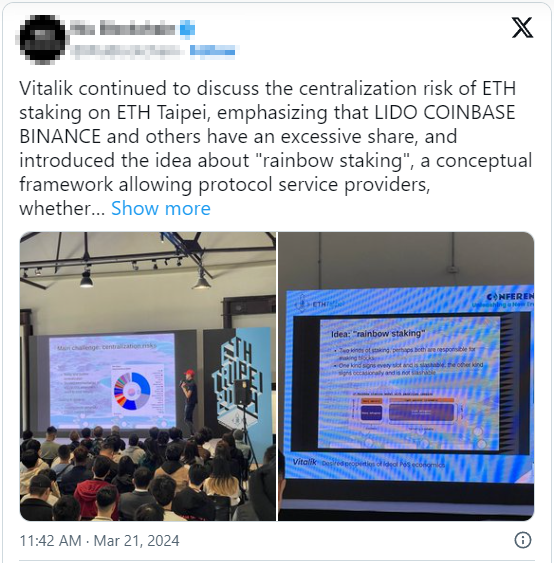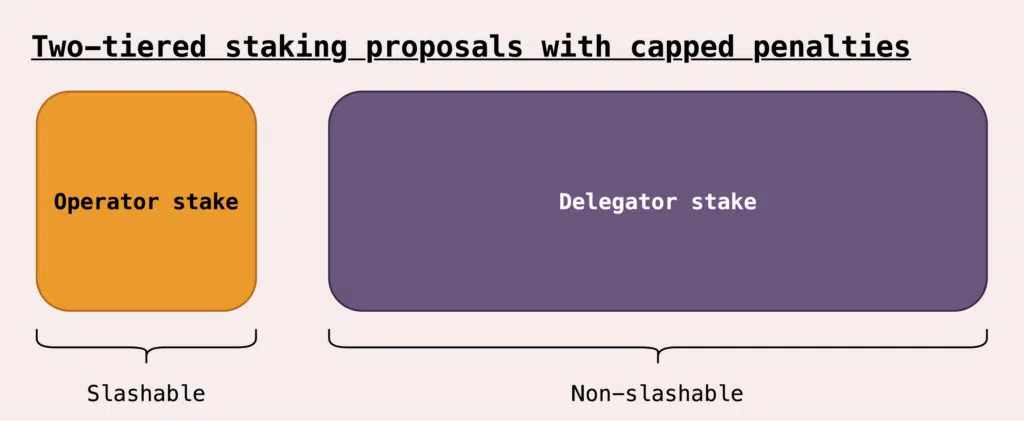Ethereum co-founder Vitalik Buterin spoke at the ETHTaipei 2024 event, which was held in Taipei from March 21 to 24.
Buterin highlighted an important issue facing Ethereum’s Proof of Stake (PoS), namely the potential risk of centralization. He promotes the idea of "rainbow proof-of-collateral", a concept originally proposed by Barnabe Monneau of the Ethereum Foundation. This mechanism is designed to incentivize service providers of all types, both individuals and professionals.

One of the main goals of the developers is to differentiate between the existing "Operators" and "Principals" and introduce classifications of "Heavyweight" and "Lightweight" services with different responsibilities and revenues level.

Source: Ethereum Research
In his speech, Buterin specifically mentioned a category of people he called "lazy pledgers." These people own 32 ether (ETH), which is the minimum threshold for staking. Typically, these people will use mining pools and liquid staking tools to participate. The founder of Ethereum believes that stakers have the option to reduce the risk of centralization through personal proof of stake.
Buterin also noted that despite users having been repeatedly told not to use Lido Finance, the platform’s total value locked (TVL) currently stands at $34.3 billion, making it one of the largest Ethereum staking platforms and Controls more than 30% of assets. In addition to Lido Finance, other major liquid proof-of-collateral service providers include Binance and Coinbase, which have a strong presence among cryptocurrency exchanges.
In October 2023, Buterin proposed changes to the staking mechanism aimed at reducing the centralization of the Ethereum network. His concerns about asset allocation among Ethereum’s liquid proof-of-stake providers have raised eyebrows. At the time, the Lido Finance platform’s liquidity pool controlled over 70% of Ethereum’s share of proof-of-stake, although the assets were spread among different stakers.
The above is the detailed content of Vitalik Buterin supports 'rainbow staking” to solve centralization issues. For more information, please follow other related articles on the PHP Chinese website!




